Two weeks after the Black Saturday bushfires had ravaged their small Victorian town, Jenny Pullen and the other evacuated residents were allowed back to visit. Thirty-four people – their neighbours, relatives and friends – had died in Marysville, an hour and a half north of Melbourne, and the area had been sealed off by police as a crime scene, but even then Pullen hadn’t grasped the magnitude of the destruction.
“We were staying with friends in Alexandra, nearby,” she says. “Buses came to take us back to town – one bus for the residents of each street. I said, ‘But our family has houses in three streets.’ And the policeman said, ‘Don’t worry, you’ll be able to see them all.’
Pullen remembers an almost jovial atmosphere on the bus as they set out through the blackened countryside, then the stunned silence that had descended once they reached the town. The policeman was right; they could see down every street from the windows of the bus, because there was almost nothing left but twisted sheets of corrugated metal and brick chimneys, standing sentinel in the flattened rubble of their homes.
“Everyone was very quiet when we got there,” recalls Pullen. “I just broke down. Because so many in the community were lost in the fire. It was the hardest thing. People often say to me how sorry they are that I lost my house and business. But don’t feel sorry for me. I’m a lucky one. I’m here to tell the story.”
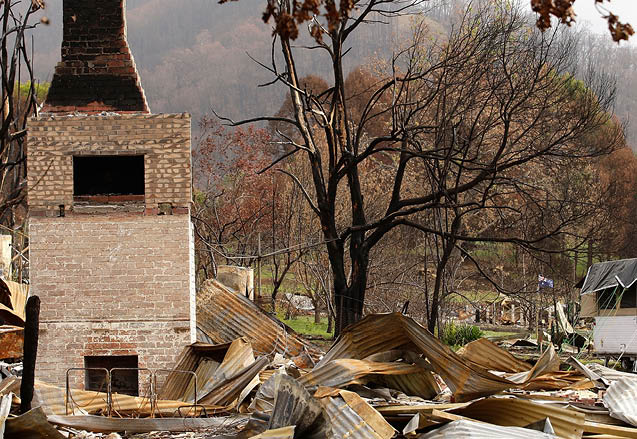
One of Australia’s worst natural disasters, the Black Saturday bushfires of February 7, 2009 claimed 180 lives in Victoria and destroyed 450,000 hectares of land. When the firestorm hit Marysville late in the afternoon it had reached an almost unimaginable intensity, which some experts compared to an atomic bomb. At the time, then-Premier John Brumby said: “There’s no activity, there’s no people, there’s no buildings, there’s no birds, there’s no animals, everything’s just gone.”
A few buildings did survive, such as the bakery and the minister’s house (Pullen jokes that divine intervention saved it), but the rest of the town had to be rebuilt. Today, as we drive down the sleepy main street, there’s no indication of the destruction that occurred. The cafes and shops, shaded by beautiful oaks, could have been here forever. The sports oval, where some trapped residents sheltered behind fire trucks as the fire raged, is an idyllic green, surrounded once more by tall trees. The air is crisp and clear.
Pullen has never told her story before, but wants to share her experience in the hope it might offer hope to some of those affected by the bushfires still burning in New South Wales and Queensland. “I just want to tell them that it will be ok,” she says. “No matter what you’re going through now, it will be ok, but you need to give yourself time. You might need a year, or many years like a lot of us. And you need to look out for each other.”
The day of the fire
Back in 2009, in the old Marysville, Pullen owned a small B&B business with her husband Bob. The day of the fire was dry and gusty, and guests in the four cottages had the curtains drawn and the air-conditioners turned up high. “I said to my husband, ‘Where’s all that smoke coming from?’” Pullen says. “And then we got a phone call from my son, a volunteer firefighter, who told me they’d been called back to Marysville but they couldn’t get through. He told us we had to collect his partner, Millie, and leave.”
Pulling on her heavy boots and wrapping a scarf around her neck, Pullen started to evacuate her guests, along with her neighbours. “It was so hot,” she says. Yet even at that point, Pullen wasn’t panicking. It was only when they met a friend of theirs, a CFS firefighter, that they started to realise the enormity of what would happen. “He told us to get out – Marysville was going to go, and there was nothing anyone could do to save it.”
A stream of fire trucks – one of them containing her son – passed by. But beyond that, Pullen struggles to remember the detail of that time. Other people have told her about the roar of the approaching fire and the acrid smoke, but she has no recollection of it. “I couldn’t smell anything, I couldn’t hear anything,” she says. “Apparently, as we drove out of town, we could see flames in the rear-view mirror, but I don’t remember them. I went to a psychologist later and said, ‘I need to go back there so I know what happened,’ but he said he wouldn’t take me there. So that’s something I just live with now.”
That night, Pullen spent several terrible hours worrying her son had died in the fire before news came that he was safe. “I felt unbelievable relief,” she says simply.
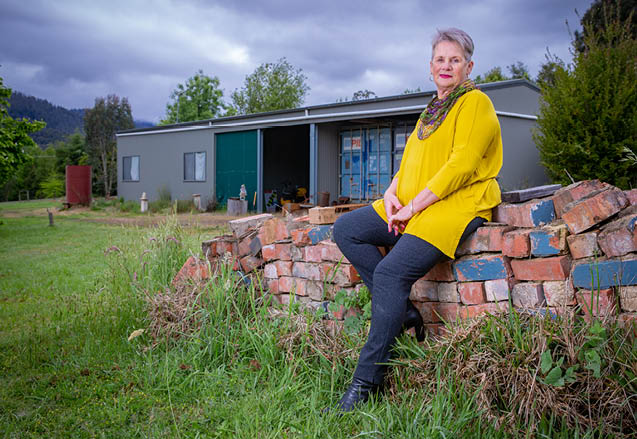
In the weeks afterwards, she and other residents of Marysville stayed in the relief centre in Alexandra or with families in the area – and relied on the generosity of volunteers to supply clothes and blankets. “In the rush to leave, I’d packed a few sentimental things, but they weren’t much use,” she says. “I had a pair of yellow shoes I liked and an alpaca jumper, and an evening dress.”
She remembers a volunteer approaching her with a donated box of socks. “I took one pair and the woman encouraged me to take a couple. I said, ‘No, one is fine.’ And she said, gently, ‘Take the socks. You don’t have any.’ We didn’t know what we didn’t have.”
Within three months, a temporary village had been built, with enough accommodation for 40 families. Conditions were rough and ready, but Pullen believes the village was crucial to the community’s survival. “It kept people together,” she says. “If the temporary village hadn’t happened, a lot of people wouldn’t have come back.” The reopening of the supermarket was another milestone, not only as a place to buy bread and milk but as a locus for people to meet each other and feel that normality was returning.
Pullen saw a psychologist after the fires to help her cope with her feelings of loss. “I was having trouble trying to prove what we’d lost,” she says, struggling to find the right words. “Not only had I lost my house, but I’d lost my friends, and my identity in the town.” Counselling helped, not least as it meant she had someone to talk to, when everyone else was struggling with their own losses, too.
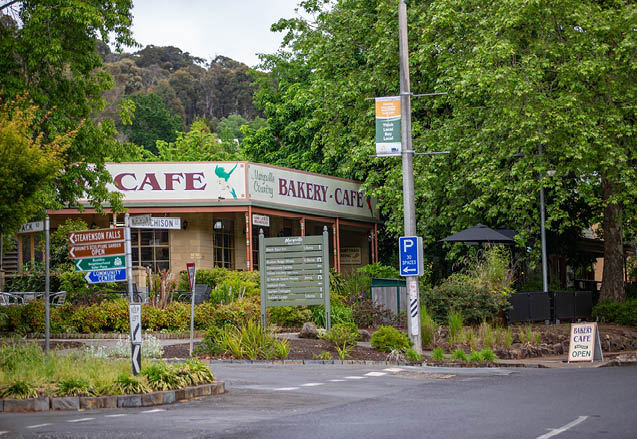
Wary of upsetting her children, Pullen and a friend decided they would turn to each other if they needed a hug or a cry. “We were that support for each other,” she says. “Many times we would break down, but it meant we weren’t burdening anyone else. You just need to find that person who you’re comfortable with. Sometimes you don’t need to speak, you just need a hug. And that’s what I want to share with those up north – give hugs, and look out for each other.”
Other Marysville residents also found solace in their family and community groups. Fiona Benson, 52, who works in the pharmacy, tells me she started scrap-booking, something she would never have considered previously. “I had a job in the Cumberland Hotel, which burned down,” she says. “I used to go to the community hall, where people were staying, just to see familiar faces.”
Not only had residents lost their homes, but in many cases they’d lost their livelihoods, too. Over time, some retrained in other roles. Pullen obtained a licence to become a real estate agent and now owns a business in the town; her husband took up his tools again and built a house. “I should have done this in my 30s,” she laughs.
Benson works in the pharmacy and believes that the town has become a more caring place. “People have a softer approach,” she says. “You take note if someone looks down. We’re gentler with each other.”
Sometimes you don’t need to speak, you just need a hug
Every morning, Pullen sits in bed in her new home, drinking a cup of tea and gazing through her window at Mount Cathedral. “I think, how lucky I am to live here,” she says. Like everyone in Marysville, she will always remember and mourn the people who died and the community that existed here before. “You’re always aware they’re not here, even now,” she says. “You know, that person who would be serving up coffee, or the kids who’d now be out there playing golf.” But what she wants to share with the fire-affected towns up north is the knowledge that renewal can occur. Marysville is still heaven on earth, she says, but it’s a different Marysville. “We’re more aware of each other and what we might be feeling. This has always been a very caring community, but we’re closer now because of what we’ve been through.”




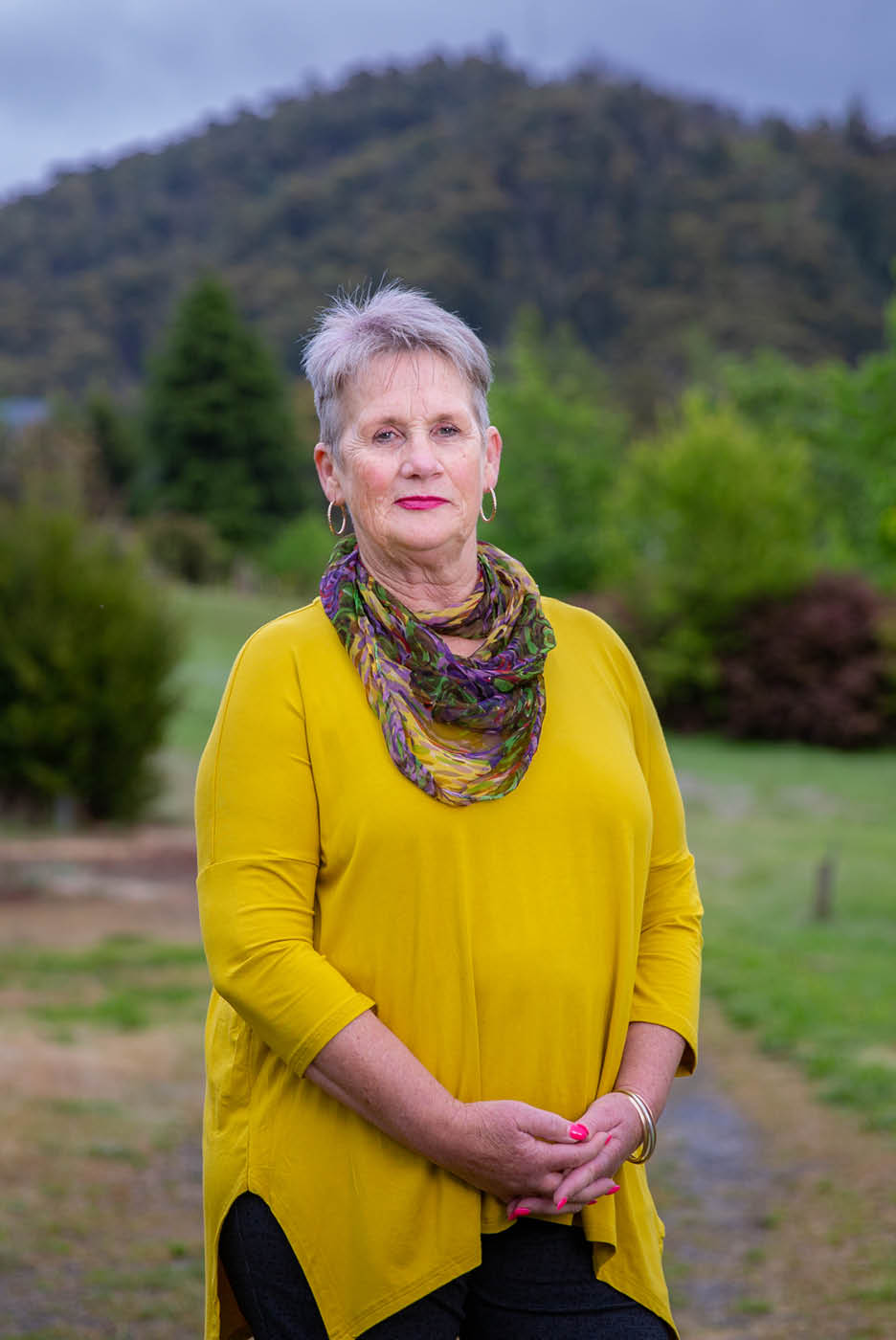



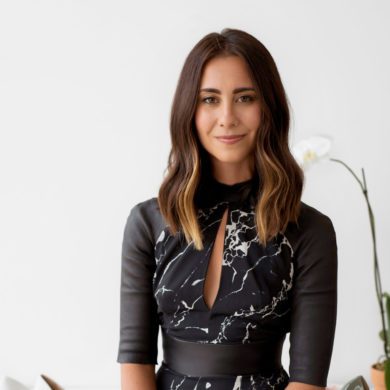

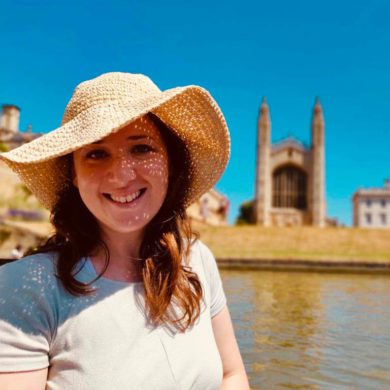



No Comments